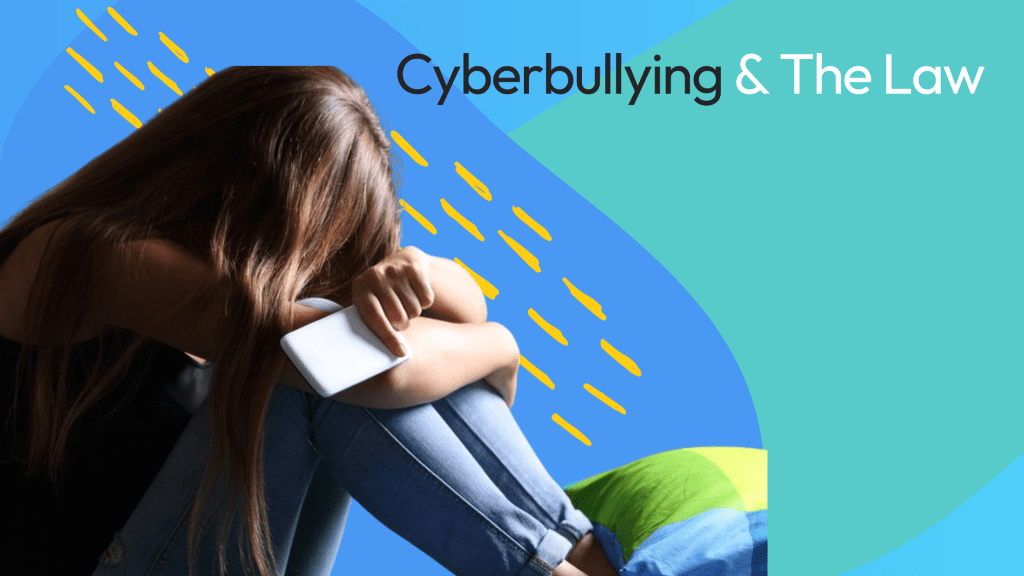We spoke with Jasmine Daya who shared insight into cyberbullying and the law.
During the pandemic children’s social world and education has gone mostly online which has lead to an increase in cyberbullying. With most parents too exhausted in the new normal and unable to invest the time to monitor access, Pink Shirt Day on February 24th is an opportunity to take the time for parents to talk openly with their children about their online and social media relationships.
We spoke with Jasmine Daya, a personal injury lawyer and Managing Principal of Jasmine Daya & Co., where she addressed the issue of bullying and cyberbullying from a legal perspective.
She shared answers to some very important questions that many parents need the answers to.

How do you spot bullying or cyberbullying?
The best way to spot bullying and cyberbullying is through ongoing communication with children to identify any issues that they are dealing with.
Also, aside from obvious signs such as physical injuries that could result from bullying or self-inflicted wounds due to mental health issues that arise as a result of bullying, parents and guardians should be aware of more subtle signs. For example, faking illness or increased complaints of illness, increased anxiety, avoiding social situations, deteriorating grades, loss of interest, feelings of sadness or helpless, acting more secretive or destructive behaviour could all be warning signs.
Is bullying & cyberbullying illegal?
Yes, bulling and cyberbullying can result in criminal charges. Criminal charges could involve criminal harassment, uttering threats, intimidation, mischief in relation to data, unauthorized use of computer, identity fraud, extortion, false, indecent or harassing communications and counselling suicide.
What are some legal options for victims of bullying or cyberbullying?
Bullying and cyberbullying could result in civil liability against the wrongdoer. In cases involving a minor, the civil liability could extend to parents or guardians due to lack of supervision of the minor. This means that victims of bulling or cyberbullying are able to sue for pain and suffering, future costs of care, out of pocket expenses and income loss, among other things.
What should you do if you or someone you know is being bullied?
It’s extremely important to seek medical attention if you believe someone you love is being bullied. Often times, mental health issues aren’t readily apparent. It’s also important to note that mental health issues have in fact worsened as a result of the pandemic.
Also, if you feel that the police should be involved, do not hesitate to file a police report. You are not only helping the victim that you are aware of but perhaps also victims you are unaware of and potential future victims of bullying and cyberbullying.
Jasmine Daya is a lawyer and the Managing Principal of Jasmine Daya & Co. She is also a published author, blogger, podcaster and speaker. Although Jasmine has files in all areas of personal injury, she focuses on claims involving minors, club assaults, particularly those involving bouncers or nightclub security, bullying and cyberbullying which is a developing area in the civil law context, elder abuse, personal injury claims arising from landlord negligence, fatality claims and catastrophic claims involving motor vehicle accidents. Jasmine also handles unique personal injury claims which enable her to think outside the box to serve her clients. Jasmine graduated from Queen’s University in 2005 with a Bachelor of Laws. While at Queen’s, Jasmine was the recipient of the Reuben Wells Leonard prize in Business law and an active volunteer within the Queen’s Law community. After completion of the Bar Admissions Course and exams, Jasmine commenced her articling in 2005 and was admitted to the Law Society of Upper Canada in 2006. While continuing to practice as a full-time lawyer, Jasmine studied at Osgoode Hall graduating in 2009 with a Master of Laws. For more information, please visit http://www.jasminedaya.com.